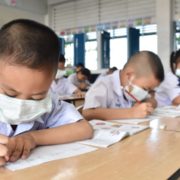Archive | Social development and protection RSS feed for this section
Education, Social development and protection
 Climate change, Environment, Poverty, Social development and protection
Climate change, Environment, Poverty, Social development and protection
 Education, Governance and public sector management, Social development and protection
Education, Governance and public sector management, Social development and protection
 Economics, Energy, Governance and public sector management, Health, Social development and protection
Economics, Energy, Governance and public sector management, Health, Social development and protection
 Capacity development, Governance and public sector management, Health, Social development and protection
Capacity development, Governance and public sector management, Health, Social development and protection
 Governance and public sector management, Health, Social development and protection
Governance and public sector management, Health, Social development and protection
 Economics, Environment, Information and Communications Technology, Infrastructure, Social development and protection, Urban development
Economics, Environment, Information and Communications Technology, Infrastructure, Social development and protection, Urban development
 Climate change, Environment, Social development and protection
Climate change, Environment, Social development and protection
 Economics, Infrastructure, Social development and protection, Transport
Economics, Infrastructure, Social development and protection, Transport
 Economics, Environment, Health, Industry and trade, Social development and protection, Uncategorized
Economics, Environment, Health, Industry and trade, Social development and protection, Uncategorized

Preparing Southeast Asia’s youth to enter the digital economy

Despite more jobs being created in the digital economy, Southeast Asian youth face a lack of preparedness coupled with a drop in employment due to the pandemic.
Protecting victims of climate-induced migration and displacement in South Asia

South Asia is home to a quarter of the world’s population and is extremely susceptible to climate change-induced displacement and migration.
Resilient education systems critical for learning continuity during crises
By Tetsushi Sonobe, Elizabeth King, Daniel Suryadarma, Michelle Kaffenberger and Dieter Dohmen. Posted April 21, 2022

Without specific efforts to recover learning, prolonged education disruptions can lead to learning losses and disparities that affect students of all income levels.
Measuring the impacts of COVID-19 in Central Asia

The COVID-19 outbreak has had wide-ranging impacts on the economies of Central Asia, with uncertainty and protective policy measures contributing to falling demand and supply.
Crisis X: Is Asia ready to face the next pandemic?

COVID-19 has highlighted the importance of collaboration among governments and stakeholders to better prepare for the next unknown crisis.
Building public trust for managing the pandemic’s psychological impacts in the Philippines

The COVID-19 pandemic has taken a toll on the psychological and social well-being of many Filipinos. Stay-at-home orders have left many in isolation and experiencing feelings of fear and anxiety, largely over economic hardship and uncertainty.
Levelling up innovation in Asia

Innovation is playing a vital role in the economic, social, and environmental progress of Asia and the Pacific and has been an important factor in the region's rapid and successful transformation. However, many countries in the region lag behind, innovating at a fraction of the pace as countries in similar or even lower income groups.
Circularity of plastics: From managing waste to generating less waste

With urbanization and the growing global population, much focus has been placed on finding solutions for improving solid waste management as a way to curb the growing amounts of waste being generated. However, governments should instead look at the root cause of the issue and shift toward exploring ways to generate less waste.
Balancing the Spillover Effects of High-Speed Rail Infrastructure Investment in Asia

Comprehensive infrastructure projects have proven to be efficient in reducing poverty, community burdens, and production costs and raising competitiveness within and between regions. However, investment in specific forms of infrastructure can help balance the trade-offs between huge infrastructure demand and scarce financial resources, especially in developing countries.
COVID-19’s impact in Asia shapes blueprint for sustainable economic recovery

The economic impact of the coronavirus disease (COVID-19) pandemic in Asia highlights the importance of entrenching longer-term sustainability and economic resilience into the recovery process. The macroeconomic effects of the pandemic, as well as the impact on firms and households in Asia, are featured in a new ADBI edited book, COVID-19 Impacts and Policy Options: An Asian Perspective.


Search
Subscribe / Connect to Asia Pathways
Subjects
- Agriculture and natural resources
- Blog
- Capacity development
- Climate change
- Economics
- Education
- Energy
- Environment
- Finance sector development
- Gender
- Governance and public sector management
- Health
- Industry and trade
- Information and Communications Technology
- Infrastructure
- Miscellaneous
- Population
- Poverty
- Private sector development
- Regional cooperation and integration
- Sanitation
- Social development and protection
- Transport
- Uncategorized
- Urban development
- Video Blog
- Water
Recent Posts
- Unraveling the Health Risks of Climate Change
- Linking Farmers to Markets Through Agricultural Cooperatives and E-Commerce in Asia
- How Can Governments Support Electricity Distribution to Achieve Net Zero in Asia?
- Promoting Corporate Climate Action Through Greenhouse Gas Accounting
- Evaluating G7 Commitments on Climate Change, Health, Well-Being, and Agriculture




Recent Comments